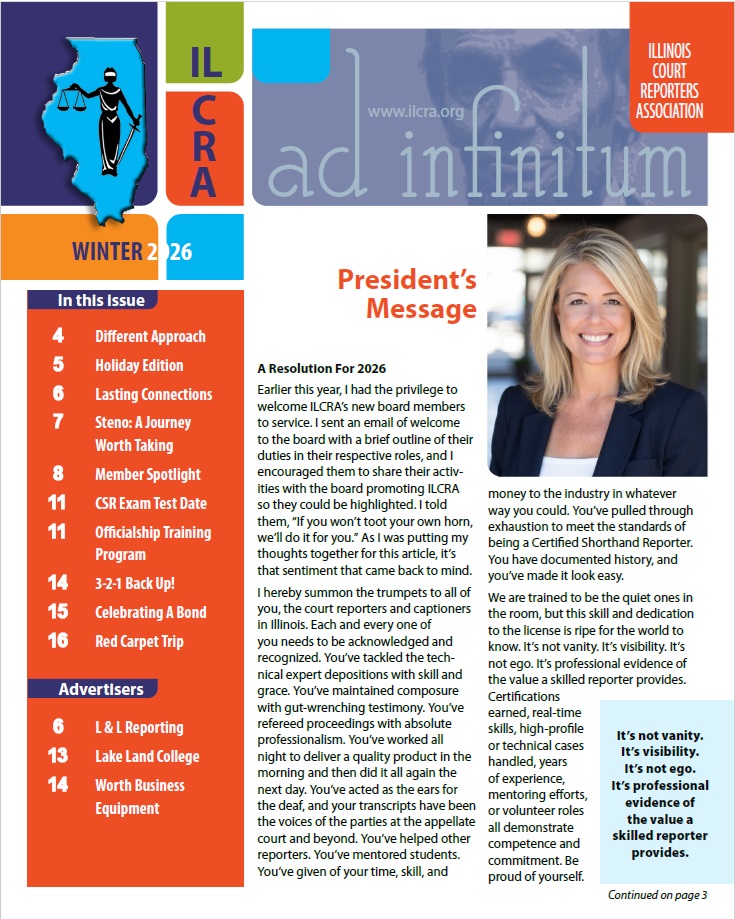- About
- Code of Ethics
- Bylaws
- Executive Board
- Past Presidents
- Awards
- ILCRA Contests
- ILCRA Advertising Policy
- Communities
- Call for Nominations
- Membership
- Events
- Certifications
- Advocacy
- Resources
- Veterans History Project
- Newsletter
Writing Effective Letters to Your LegislatorsWriting Effective Letters or E-mails to Your Legislators In the age of the Internet, e-mail, and faxes, some have deemed the impact of letters obsolete. However, government representatives are growing increasingly responsive and reliant on feedback and suggestions from their constituents. The most direct way of impacting a legislator is through a letter writing campaign. The more letters a legislator receives, the more important the issue becomes. Even with noncontroversial issues, it is important to write letters because if there is no evident public consensus, they are likely to rely on the letters they did receive as the consensus. Letters also visually show who and how many people the legislation will affect. However, a poorly written and presented letter will make little, if any, impact at all. It is important to identify yourself as a member or an officer of your association so the legislator identifies your association as a player in this issue. Another category some writers may fit into is that of a small business person. Research the legislator's background to find out their stance on small businesses and associations. The research can determine the best way to approach the legislator that would have the best impact. However, writing multiple letters as one person with various titles is not a good idea. The office tabulates the letters by name, not title, so your letters would simply show up as multiple letters from the same person. Federal legislators’ biographies and addresses can be obtained at http://www.house.gov/ or http://www.senate.gov/ depending on their position. For Illinois, the same information can be located at http://www.elections.il.gov/DistrictLocator/DistrictOfficialSearchByAddress.aspx Your Letter Here are some important tips for your letter:
The first paragraph should include a greeting and a request for specific action to be taken by the legislator. Again, if the letter is in reference to a specific bill, include the name and number of the legislation. In the next paragraphs, describe the bill and explain and support your position. Always be positive in your rationale. To facilitate a response, ask how he/she plans to vote on the issue and request a direct response. Finally, thank the legislator for their consideration and sign your name. Remember to include your address in the letter and on the envelope as this identifies you as a constituent. |

